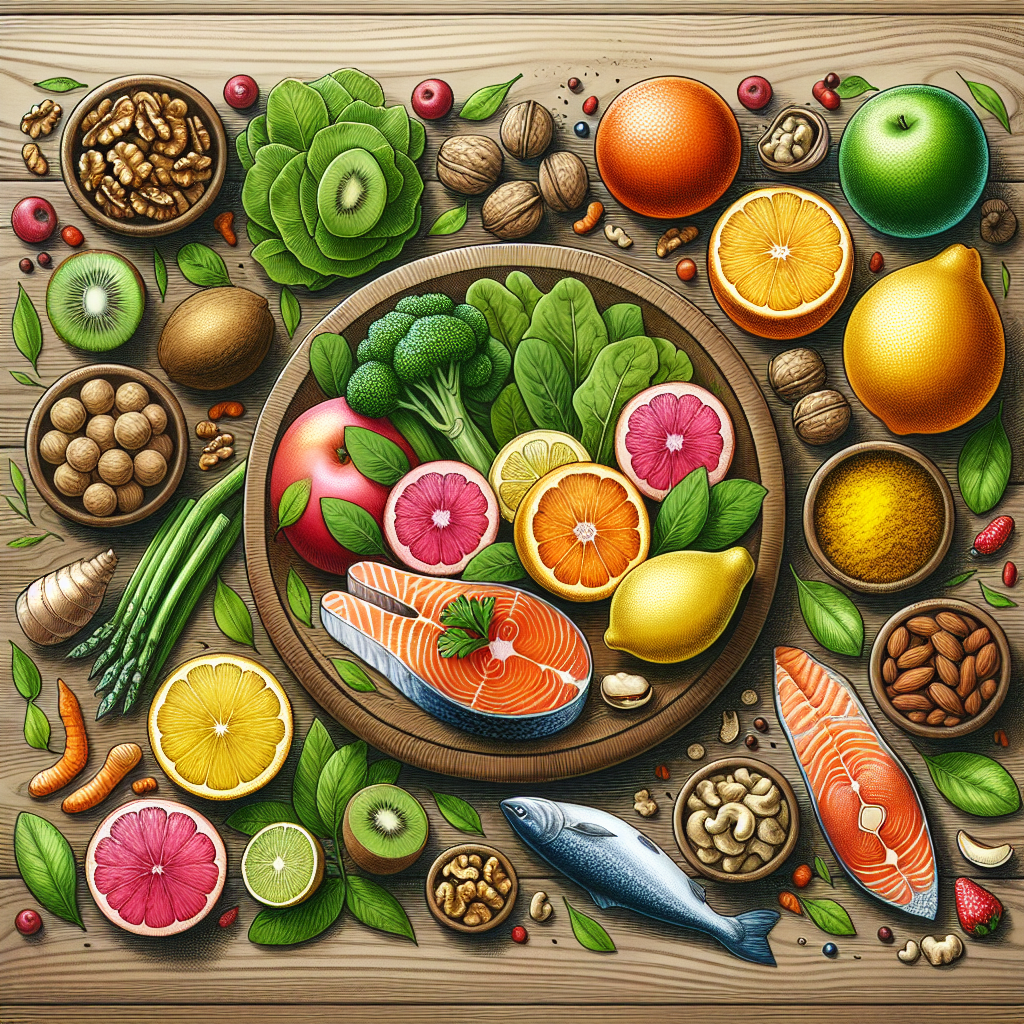Zinc and Vitamin C-Rich Foods That Speed Up Tissue Repair
Wound healing is a complex biological process that requires proper nutrition to support tissue regeneration and immune function. Organic foods rich in zinc, vitamin C, and other essential nutrients can significantly accelerate recovery by promoting collagen synthesis, reducing inflammation, and preventing infections. Here’s a detailed look at the best organic foods to incorporate into your diet for faster wound healing.
Why Zinc Is Crucial for Wound Healing
Zinc plays a vital role in cell division, immune response, and protein synthesis—all critical for wound repair. This essential mineral helps maintain skin integrity and supports the formation of new tissue. A deficiency can delay healing, making it essential to consume zinc-rich foods throughout the recovery process. Research shows that zinc supplementation can reduce healing time by up to 43% in some cases.
Top Zinc-Rich Organic Foods
- Pumpkin Seeds: Just one ounce provides nearly 20% of your daily zinc needs, along with magnesium and healthy fats that support overall healing.
- Organic Grass-Fed Beef: A 3-ounce serving contains about 7mg of highly bioavailable zinc, plus complete proteins necessary for tissue rebuilding.
- Spinach: This leafy green offers zinc, iron, and antioxidants that work synergistically to promote healing and prevent infection.
- Chickpeas: A plant-based powerhouse providing 1.5mg of zinc per half-cup, along with fiber that supports gut health during recovery.
- Cashews: A convenient snack containing 1.6mg of zinc per ounce, plus healthy monounsaturated fats that reduce inflammation.
The Role of Vitamin C in Collagen Formation
Vitamin C is perhaps the most well-known nutrient for wound healing, essential for collagen production—the protein that forms the structural foundation of skin and connective tissues. It also acts as a powerful antioxidant, protecting cells from oxidative stress that can occur during the healing process. Studies show that vitamin C can increase collagen synthesis by up to eight times, making it critical for proper scar formation and tissue strength.
Best Vitamin C-Rich Organic Foods
- Oranges & Citrus Fruits: One medium orange provides about 70mg of vitamin C, along with flavonoids that enhance nutrient absorption.
- Bell Peppers (Red & Yellow): Surprisingly, one cup of chopped red bell pepper contains nearly 3 times the vitamin C of an orange (190mg).
- Broccoli: Offers 81mg of vitamin C per cup, plus sulforaphane, a compound that may accelerate wound closure.
- Strawberries: One cup provides 85mg of vitamin C along with ellagic acid, which may help prevent scar tissue buildup.
- Kiwi: Contains about 64mg of vitamin C per fruit, along with actinidin, an enzyme that may help reduce inflammation.
Other Essential Nutrients for Wound Healing
While zinc and vitamin C take center stage, a complete wound-healing diet should include several other key nutrients. Protein provides the building blocks for new tissue, omega-3 fatty acids reduce inflammation, and vitamin A supports epithelial cell growth. A balanced approach ensures all stages of healing—from inflammation to remodeling—progress efficiently.
Protein-Rich Foods
- Organic Eggs: Contain all nine essential amino acids plus vitamin A and zinc in the yolk for comprehensive healing support.
- Wild-Caught Salmon: Provides high-quality protein along with anti-inflammatory omega-3s that may reduce scarring.
- Organic Greek Yogurt: Offers probiotics for gut health and protein for tissue repair in one convenient package.
Anti-Inflammatory Foods
- Turmeric: The active compound curcumin has been shown to accelerate wound contraction and improve collagen deposition.
- Ginger: Contains gingerols that reduce oxidative stress and may improve circulation to injured areas.
- Extra Virgin Olive Oil: Rich in polyphenols that fight inflammation while providing healthy fats for cell membrane repair.
Foods to Avoid for Optimal Healing
Certain foods can significantly impair the healing process by promoting inflammation or interfering with nutrient absorption. Processed sugars spike blood glucose levels, which can weaken immune response and collagen formation. Refined carbohydrates may deplete zinc stores, while excessive alcohol consumption can interfere with protein synthesis and vitamin absorption. During recovery, it’s best to limit:
- Processed snacks and sweets
- Fried foods high in omega-6 fatty acids
- Excessive caffeine
- Foods with artificial additives
Sample Meal Plan for Faster Healing
Putting these principles into practice, here’s a one-day meal plan packed with healing nutrients:
- Breakfast: Spinach and mushroom omelet cooked in olive oil with a side of kiwi and pumpkin seeds.
- Mid-Morning Snack: Greek yogurt with fresh strawberries and a sprinkle of turmeric.
- Lunch: Grilled wild salmon with quinoa pilaf (mixed with chickpeas and diced bell peppers).
- Afternoon Snack: Hummus with carrot and cucumber sticks, plus a handful of cashews.
- Dinner: Grass-fed beef stir-fry with broccoli, ginger, and turmeric over brown rice.
- Dessert: Dark chocolate (85% cocoa) with orange segments for added vitamin C.
Remember to stay well-hydrated with water and herbal teas, as proper hydration is essential for delivering nutrients to healing tissues and removing waste products. By consistently incorporating these organic, nutrient-dense foods into your diet, you can create an optimal internal environment for wound healing that may significantly reduce recovery time and improve outcomes.
